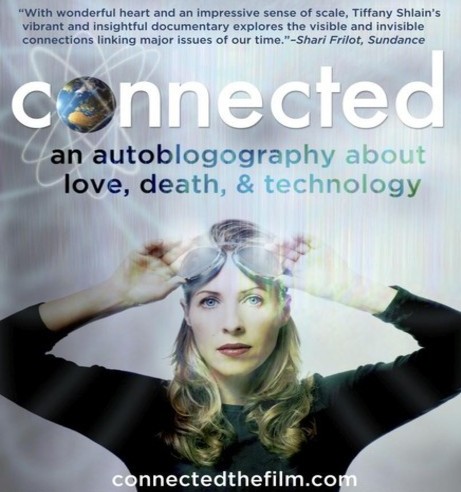Author Archives: Amanda Walgrove
November 20, 2013 by Amanda Walgrove
The Shondes: Anthems for Your Inner Outsider
 Since they started making waves with their 2008 debut album, “The Red Sea,” Brooklyn’s homegrown rock band, The Shondes, have lived up to their Yiddish-inspired name. Providing anthems for everyone’s inner outsider, they’ve been shaking up the music scene with influences from Riot Grrrl, traditional klezmer music, and feminist punk rock, all wrapped into one package.
Since they started making waves with their 2008 debut album, “The Red Sea,” Brooklyn’s homegrown rock band, The Shondes, have lived up to their Yiddish-inspired name. Providing anthems for everyone’s inner outsider, they’ve been shaking up the music scene with influences from Riot Grrrl, traditional klezmer music, and feminist punk rock, all wrapped into one package.
Back in 2011, I interviewed the band before the release of their third album, “Searchlights.” Now, as they spiral down from the nationwide tour of their fourth full-length album, “The Garden,” I caught up with The Shondes’ front-woman, Louisa Solomon, to learn more about writing songs for radical organizing and what it means to never give up on The Garden.
AW: Was there a Biblical influence for the song and album title, “The Garden”?
LS: In the sense that the garden of Eden is an unavoidable cultural frame for thinking about growing up, loss, disillusionment, and all of that. It’s common ground in a way for getting into all the interesting stuff inside it. But really we were thinking of a non-specific imagined garden, as a kind of holding place for parts of yourself, precious things you’ve given up but know are still out there in some form, somewhere. It begs all the questions that go along with pain and loss and growth: where does stuff go when we cast it off, and what’s it like if we try to retrieve it? It’s just an interesting landscape to spend some time in.
AW: Who are you most inspired by, musically or otherwise?
LS: I am really inspired by people who find ways to make stuff happen, against the odds, against the flow.
I am definitely inspired by my sister Claire, who, in addition to being a creative and brilliant academic and educator, is a completely genius fiction writer. Her novels read like nothing else. She is so adept at playing with form that the story never suffers for its own subversions and explorations. I think about that a lot when writing songs — how to keep experimentation in service of the song.
My musical inspirations are varied, but united by their ability to make me feel big feelings: soul, punk, some pop (though I’m picky), and anthemic rock. That’s most of what I listen to these days. I’m a sucker for a well-written song.
I’m inspired by musicians/friends in Brooklyn who are working hard like we are to write solid songs and share them with people, while making rent in an amazing city. Leda, Chris McFarland, and Laura Stevenson are all good examples.
And of course my love, New York itself, is an ever-present source of inspiration.
- No Comments
November 10, 2011 by Amanda Walgrove
The Quest for Connection
 Tiffany Shlain’s newest film, “Connected: An Autoblogography About Love, Death & Technology,” explores the history of human interaction, and the hope that natural and technological connections don’t have to be mutually exclusive.
Tiffany Shlain’s newest film, “Connected: An Autoblogography About Love, Death & Technology,” explores the history of human interaction, and the hope that natural and technological connections don’t have to be mutually exclusive.
Honored by Newsweek as one of the “Women Shaping the 21st Century,” Tiffany Shlain has been making films for nearly two decades. Somewhere in the middle, when she was 26, she also founded the Webby Awards.
It wasn’t until “Connected” that the filmmaker made the decision to step in front of the camera herself. Says Shlain, “I chose to speak my truth in order to speak to some universal truth. That was my guiding principle.” When she suddenly received news that her father had nine months to live and that she was pregnant with a second child, Shlain decided that telling her own story would ultimately convey the true struggle of what it means to be connected. The film encourages a return to our roots, to the fundamental values of human interaction and the use of social networks as support systems.
- No Comments
October 18, 2010 by Amanda Walgrove
At the Theater: Abraham's Daughters

Abraham’s Daughters, written by Elissa Lerner and directed by Niccolo Aeed, premiered at the New York International Fringe Festival this year along with over 200 other talent-filled plays. Lerner, currently a graduate student at NYU, penned the script as a thesis for her double major in Religion and Theater Studies at Duke University. After reading a great deal of text about Abraham’s Biblical sons, the playwright pondered, “Even to provoke half of a thought: What if? How would things be different? How would women tell the story of their religious experiences?” Lerner, as the female pseudo-Abraham, scribed the lives of the Jewish Sarah (Rebecca LaChance), her Muslim roommate Ranya (Dea Julien), and their Christian friend Kate (Keely Flaherty). Additionally, Lerner cleverly throws Will (Aryeh Lappin) into the mix, representing a belief that is becoming increasingly contagious throughout American youth. He is an atheist who repeatedly insists on being called a rationalist. In a contemporary and relatable context, these four friends come to understand that religious values can be as fragile as budding friendships. (more…)
- No Comments
 Please wait...
Please wait...